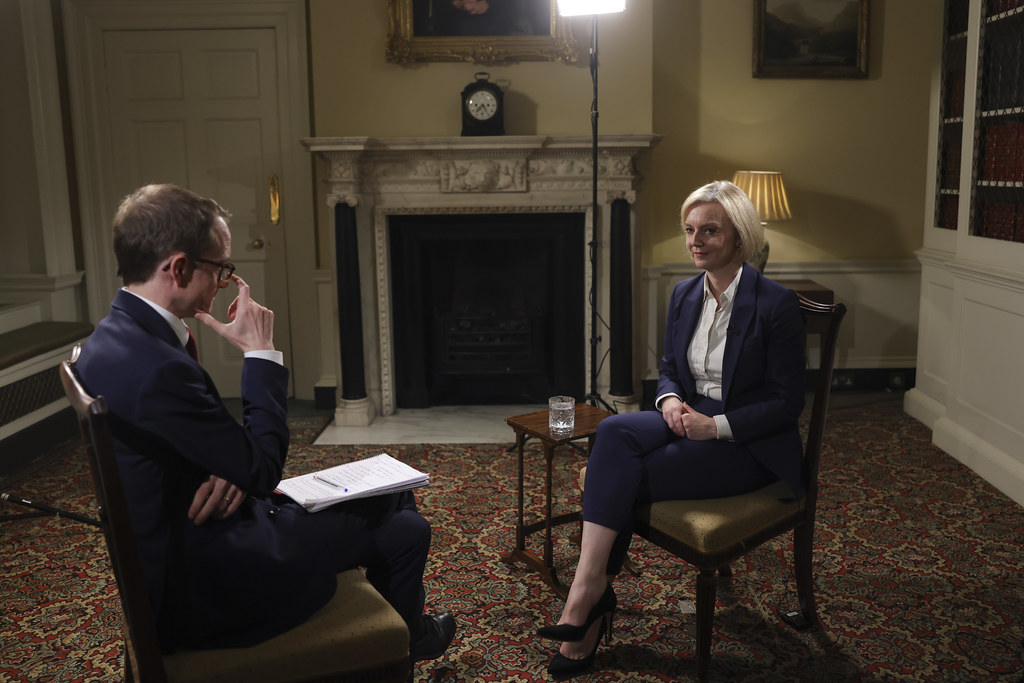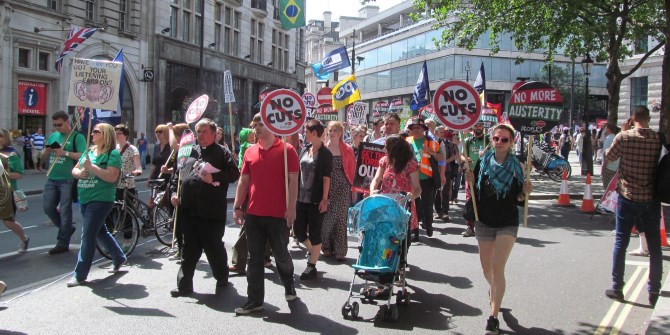It is a paradox that as societies get more prosperous and wealth holdings grow, rising numbers are unable to afford the most basic of material and social needs. Stewart Lansley explains the roots of this apparent contradiction and outlines an alternative vision in which wealth serves the common good.
In the last year, The Trussell Trust charity has distributed a record 3 million food parcels. State benefits are at least £140 a month below the real cost of everyday basics. The number of people living in temporary accommodation has hit a 25 year high, while, after a century of improvement, UK life expectancy rates have been falling in deprived communities. Earlier this month, the right-of-centre Spectator magazine carried the headline “Broken Britain”.
It is a stark paradox of contemporary capitalism that as societies get more prosperous, rising numbers are unable to afford the most basic of material and social needs. While the risk of relative child poverty has more or less doubled in 40 years, the limits to the lifestyle choices of the super-rich are constantly being raised. Few modern tycoons go without the private jet, the luxury yacht, even the private island.
“The conquest of material scarcity [should be] the dominant concern”
There has been no lack of historic warnings of the destructive impact of economies heavily geared to meeting the hedonistic demands of the super-rich. The owners of capital increasingly colonise scarce resources, with the return of what nineteenth-century economists called “luxury capitalism”. As the heterodox American economist Thorstein Veblen warned in 1899, an orgy of luxury spending of “elephantine proportions” depleted the level of ordinary, “non-luxury” demand necessary to sustain the economy and society. In his influential 1950’s work – The Affluent Society – still in print, the American economist JK Galbraith set out the dangers of “private affluence and public squalor”. Twenty years later, the British economist Fred Hirsch argued, persuasively, that “so long as material privation is widespread, conquest of material scarcity is the dominant concern”.
During the post-war decades, these warnings were largely heeded. Spending on social programmes outstripped private consumption while the wage and benefit floor was raised in line with growth. State policy softened the pre-war co-existence of extreme opulence and severe social scarcity. But these trends have been overturned with the 40-year long counter-revolution against post-war egalitarianism.
Adherence to one of the canons of market economic theory – that public activity “crowds out” more productive private activity – has contributed to an extended bonanza for the already wealthy and a steady weakening of the income floor. A key consequence of the “private good, public bad” doctrine has been Britain’s comparatively low level of social investment. With the share of national wealth that is publicly owned falling from a third in the 1970s to less than a tenth today, Britain is one of the most heavily privately owned of major economies.
A widening gap
In heavily marketised economies with high levels of income and wealth concentration, the demands of the wealthy will always outbid the needs of those on lower incomes. Such economies are characterised by an emphasis on personal enrichment through the “appropriation” or “extraction” of existing, rather than the creation of new wealth and building greater resilience. It is a process that deflects resources from meeting basic needs and building essential social infrastructure to feeding the lifestyles and pet hobbies of the super-rich. High profile tycoons use their companies as private fiefdoms. Big corporations are turned into cash cows for their owners and executives. This is a far cry from the culture of entrepreneurialism promised by Margaret Thatcher, Tony Blair and, most recently, George Osborne in his call for a “march of the makers”.
Spending on key public goods – from children’s services and young adult training to social and health care – has been starved. Yet Britain is also one of the highest users of private jets, contributing a fifth of related emissions across Europe. Scarce land and building resources have been used to construct walls of multi-million pound luxury flats and mansions, mostly bought for speculative purposes and left empty for much of the year, by the mobile super-rich. Such resource misallocation has been a key driver of today’s decline in the level of home ownership, a lack of social housing, and unaffordable private rents.
The function of wealth
Another outcome has been a surge in the level of (heavily unearned) personal wealth. Despite a crisis-ridden economy, the British asset mountain – a mix of financial, corporate and property assets – has risen to almost seven times the size of the economy, up from 3 times in the 1970s. Most of this rise has been captured by the already wealthy, reversing the narrowing post-war wealth gap. One hundred years after the birth of full democracy, half the population has still never held more than a tenth of private wealth.
Wealth accumulation through extraction serves no useful purpose. This second “gilded age” for the few, a repeat of the late Victorian wealth surge, is usually defended as a justifiable reward for value-creating economic activity that benefits wider society. Yet today’s tearaway fortunes are less the product of a wealth-creating leap-forward, than of the accretion of economic power, monopolisation, and elite control over scarce resources.
Today’s towering wealth pool could be turned into a progressive economic force. New forms of regulation, taxation and common ownership, through, for example, a collectively owned citizen’s wealth fund, could harness part of this asset base for the common good. Higher taxes on wealth could help fund the rebuilding of Britain’s badly broken public realm. Greater social ownership could give all citizens a direct stake in the economy, one which most currently lack.
Image credit: Shutterstock







